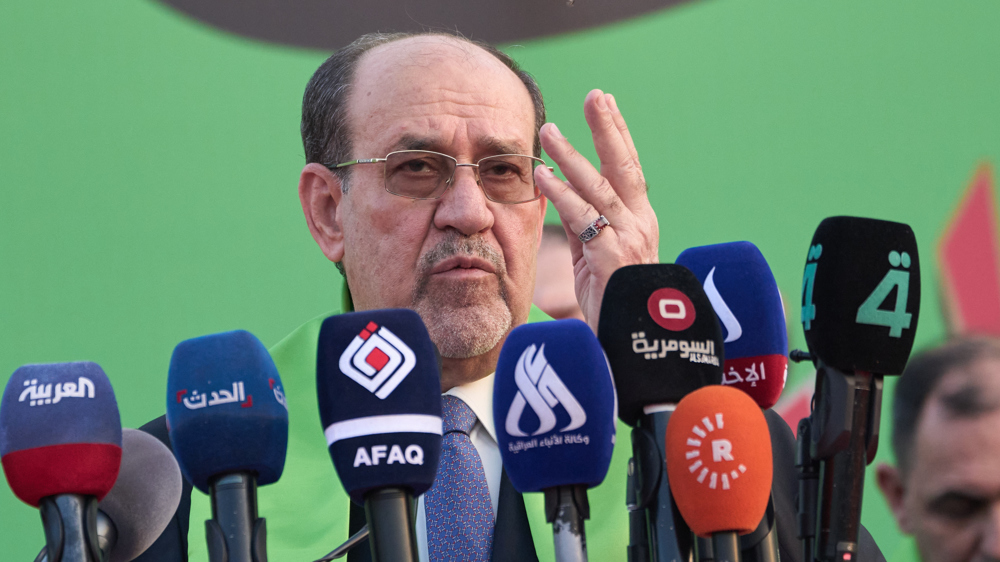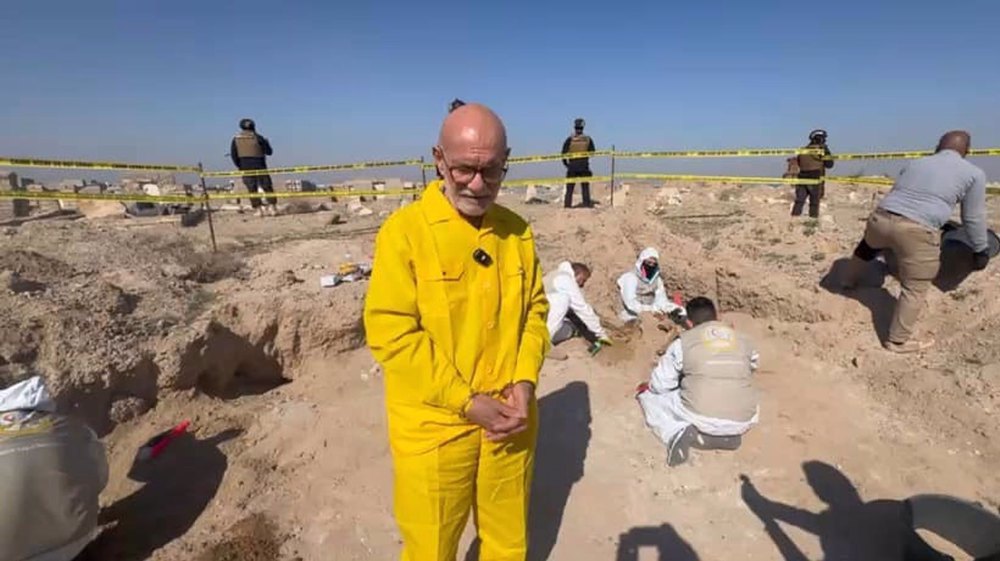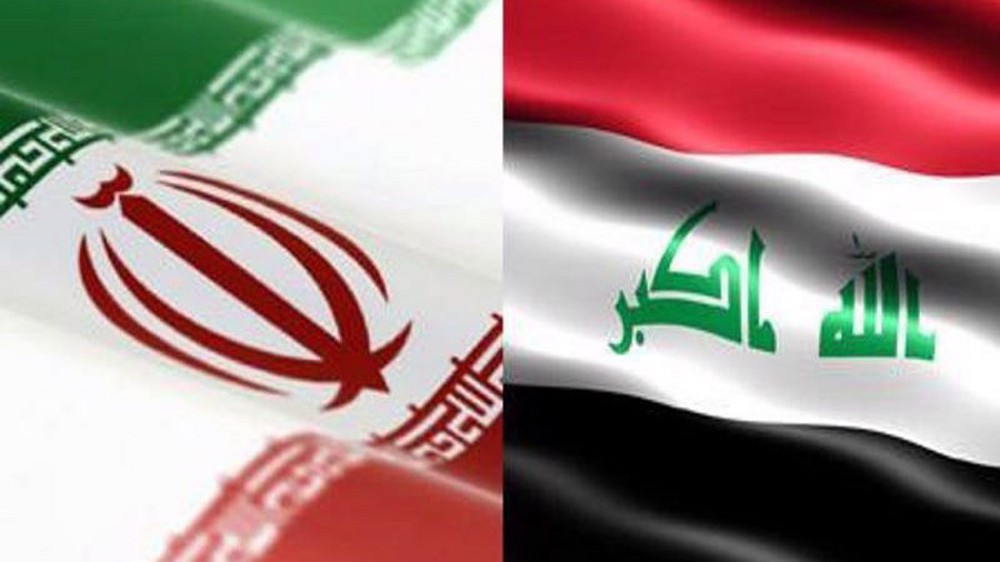Peshmerga forces won’t enter Iraq’s Mosul: Kurdish leader
The leader of Iraq’s semi-autonomous Kurdistan region has assured that Kurdish Peshmerga forces will not set foot in Mosul during a joint operation with the army and allied fighters aimed at liberating the Daesh-held northern city.
“The Peshmerga will not enter the city of Mosul,” Masoud Barzani said in a news conference with Chairman of the Islamic Supreme Council of Iraq (ISCI) Ammar Hakim, in Zartac Mountain, near the city of Nineveh, on Thursday.
Barzani further said the Kurdish fighters are coordinating their role in the Mosul liberation operation with the Iraqi military, adding that the collaboration will continue.
The Kurdish leader further highlighted unity among different Iraqi political parties, adding that Daesh was no more a threat as most areas are back in control of the Iraqi forces.
Last week, the Popular Mobilization Units, a mainly-Shia military group backing the Iraqi army in the Mosul offensive, also said its forces would not march into Mosul, adding that Iraqi army soldiers and security personnel would enter the embattled city.
Barzani further referred to recent Daesh terror activities in the Kurdish-controlled city of Kirkuk, saying the Takfiri terror group is making desperate attempts to cover up its defeats in the Mosul battle.
“We were able to control the situation quickly and kill the terrorists,” the Kurdish leader said.
Terrorists launched several rounds of attacks in the city of Kirkuk over the weekend as Iraqi officials are focused on the Mosul offensive.
On Friday, at least 100 Daesh elements went on a rampage in Kirkuk to divert an Iraqi and Kurdish military advance on Mosul. The incident left 99 civilians and members of the security forces dead as well as 63 militants, according to Iraqi security officials.

For his part, Hakim highlighted the need for avoiding rifts in Iraq and staying focused on the fight against Daesh.
He further stressed that a Turkish base present in Bashiqa near Mosul was not welcome.
“This (Turkish) base, and the forces that came to the base, were present without coordination with the Iraqi government. They are armed forces, and we strongly refuse the participation of any non-Iraqi fighter in this battle,” Hakim said.
Last December, Turkey deployed some 150 soldiers, equipped with heavy weapons and backed by 20 to 25 tanks, to the Bashiqa camp.
Ankara claimed the deployment was part of a mission to train and equip Iraqi Kurdish Peshmerga forces in the fight against Daesh, but Baghdad denounced the unauthorized move as a violation of Iraq’s sovereignty.
Recently, Ankara claimed that his country is involved in the Mosul operation, but Baghdad denied such a role.
Last week, the Iraqi army, volunteer Shia and Sunni fighters as well as Kurdish Peshmerga forces launched a long-awaited operation to wrest control of Mosul, the last stronghold of Daesh in the Arab country.
Many believe that the recapture of Mosul, which fell to Daesh in 2014, would signal the terror outfit’s total defeat in Iraq.
Iraqi Special Forces commanders said Thursday that the Mosul operation was proceeding as planned and they were now waiting for further gains in the south before resuming their push toward the city.
“The operation has not been stopped and is proceeding as planned,” Special Forces Brigadier General Haider Fadhil said.
In another development on Thursday, the US estimated that up to 900 Daesh terrorists have been killed in the Mosul liberation operation so far.
General Joseph Votel, the head the US military’s Central Command, said the operation was taking a heavy toll on the Takfiris.
There are between 3,500 and 5,000 Daesh elements in Mosul and up to another 2,000 in the broader area, according to US figures.
More Daesh tunnels uncovered
Also on Thursday, Iraqi troops discovered several tunnels used by Daesh terrorists in recently recaptured villages of Bartella and Bazwaia, located between 5 and 7 kilometers east of Mosul.
“When we entered the Khazna Taba neighborhood (in Bartella) and after we liberated it, we found several tunnels,” said Razed Qusai al-Kinani, a member of Iraqi Counterterrorism forces.
One of the tunnels, which is 200 meters long and 10 meters deep, was used by Daesh for meetings and allowed the terror outfit’s ringleaders to move around during the battle, he added.
Elsewhere in the village of Tob Zawa, the Iraqi troops found a tire shop that had been converted into a factory for making roadside bombs and attaching armor to vehicles.
They also discovered another tunnel in the village equipped with fans and lights that ran from beneath a mosque out to a road.
Over 2,000 Britons served in Israeli military during Gaza genocide: Report
Houthi: Iranian, Yemeni revolutions inspire Islamic nation in face of enemy plots
Iran defeating sanctions for decades since Islamic Revolution victory
AIPAC faces challenge as new PAC seeks to end US backing of Israel
VIDEO | Press TV's news headlines
Iran president hails ‘exceptional’ turnout in Islamic Revolution anniversary rallies
VIDEO | Pro-Palestine protesters rally in Melbourne on final day of Israeli president's Australia trip
Gaza genocide's death toll may exceed 200,000: Report














 This makes it easy to access the Press TV website
This makes it easy to access the Press TV website